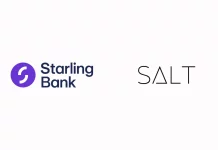“Corporates expect greater transparency in cross-border payments … they want to know what is happening with the payments; and when it has been credited on the beneficiary’s account…” , the words of Wim Raymaekers, Head of Banking Market and SWIFT gpi at SWIFT, echo the sentiments of many an opinion leader in the industry.
Quick on the trails of a Survey conducted by TD Bank, released last year, the EuroFinance Corporate Treasury published a report in the third quarter of 2017 in collaboration with SWIFT, and underscoring the moot point.
47% of respondents from the TD Bank Survey reported that real time payments are not essential to their positions.
Less than half of the 300 treasury professionals interviewed wanted to make instant payments, quoted the Report by EuroFinance Corporate Treasury.
Companies with turnover between US$1 Bn and US$10 Bn comprised a 44% segment in the pie-chart that agreed to real-time payments as a necessity for day-to-day banking.
And of those with turnover above US$10 Bn per annum, 40% preferred the mode as inevitable.
What emerged as a priority need above all these factors and across the segments, is their interest in seeing real-time payment tracking rather than real-time payments.
Almost 75% of the companies (of US$1 Bn or less) were drawn to this aspect as their preferred choice of feature.
Even two-thirds of the companies with the turnover between US$1 Bn and US$10 Bn, and also those above US$10 Bn, were more interested in real-time tracking.
Corporate Treasures were not so fascinated by alternate financial services and Fintech players in the market, the Survey made visible.
Concerns of fraud and security were the main issues to look doiwn on them, said the source.
Only 15% of the corporate entities surveyed actually utilized any Fintech service provider. And these were companies above US$1 Bn.
Of those with US$500 Bn and above, just 4% of the population really bothered to include a FinTech service provider in their vendor list.
Over 55% of the treasurers stated that they had no plans of using alternate service provider for cross-border payments and a meagre of one-fifth said that they might consider using one.
Notably, 61% of the treasurers gave top priority to standardization and automation if at all they chose an alternative payment service provider other than their bank. 44% of them gave considered traceability of payments important and 39% gave more importance to regulatory obligations.
Since banks clearly are the favored choice because of their ability to remain compliant and to provide protection against fraud, the shift towards alternative service provider will happen only if, they meet stringent standards and could ensure security.
At least, the data suggests that corporate treasurers demand more visibility of their transactions across the cross-border payments system than real-time payments.
Things being so, it looks like a long-haul to realize the paradigm shift and make alternative payments systems using FinTech a priority – especially to make its processing transparency a feature that’ll bring better customer satisfaction.









